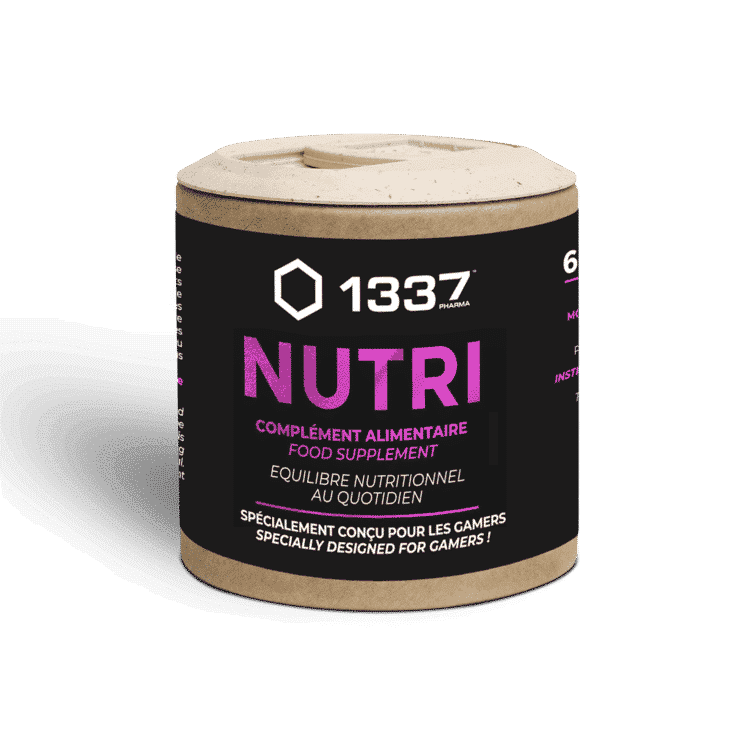VITAMIN B8
Ingredient
What is Vitamin B8?
Where does it come from?
Why is it used?
What are the benefits?
Bibliography
What is Vitamin B8?
The word “biotin” is derived from the ancient Greek word “biotos” and means “life” or “survival”. B vitamins, especially biotin, contribute to the health of the skin, hair, eyes, liver and nervous system. Biotin is also a crucial nutrient during pregnancy, as it is important for embryonic growth. (Perry et al., 2014, p. 3)
Where does it come from?
Most people get the biotin they need through a healthy diet, but many claims claim that increased biotin intake can regulate blood sugar, promote healthy hair, skin and nails, and help women pregnant to give birth to healthier babies.
Biotin is water soluble. The body does not store water-soluble vitamins, so people must get them from their diet.
Biotin deficiency is quite rare. However, some people – such as pregnant women and people who drink a lot of alcohol – can develop mild deficiencies.
Also, regular consumption of raw eggs can lead to biotin deficiency because raw egg whites contain a protein called avidin which binds to biotin, preventing the body from absorbing it. Cooking eggs deactivates their avidin.
Why is it used?
Biotin plays many important functions in the body, including:
• The breakdown of macronutrients
Biotin helps the body convert food into energy. It supports a number of enzymes involved in the breakdown of carbohydrates, fats and proteins.
More specifically, biotin is involved in:
Gluconeogenesis: This is the synthesis of glucose from sources other than carbohydrates, such as amino acids, and enzymes containing biotin help initiate this process.
Fatty acid synthesis: Biotin assists enzymes that activate reactions important for the production of fatty acids.
Breakdown of amino acids: Enzymes containing biotin are involved in the metabolism of several important amino acids, including leucine.
• Promote nail health
Brittle nails are fragile and split or crack easily. Biotin deficiency can lead to brittle nails.
For people with this deficiency, taking biotin supplements improves nail strength.
Dietary changes and other lifestyle factors, such as certain commercial products, can help improve nail health.
(Colombo et al., 1990; Floersheim, 1989; Hochman et al., 1993)
• Strengthen hair health
Several foods play an important role in healthy skin and hair. For example, eggs, Brazil nuts, and oily fish are foods that promote healthy hair.
For example, eggs, Brazil nuts, and oily fish are foods that promote healthy hair. Many hair care products that claim to promote healthier, stronger hair contain biotin. Biotin deficiency can lead to hair loss, indicating that this vitamin plays a role in maintaining healthy hair.
However, few studies have linked this vitamin to hair health in people who are not lacking in biotin.
(Glynis, 2012; Patel et al., 2017; Şen & Türkçapar, 2021; Trüeb, 2016)
• Pregnancy and breastfeeding support
Biotin is very important for pregnant or breastfeeding women. Symptomatic biotin deficiency is rare, but low biotin levels are common during pregnancy. In fact, about 50% of pregnant women in the United States may have at least a mild biotin deficiency. This level of deficiency can affect a person’s health, but not enough to cause noticeable symptoms. (Saleem & Soos, 2022)
Health experts believe that this deficiency is common in pregnant women because the body breaks down vitamins faster during pregnancy.
Therefore, a pregnant woman may need more biotin – in her diet or in supplements – than a woman who is not pregnant.
However, it is important to consult your doctor before taking any dietary supplement, whether you are pregnant or breastfeeding.
• Reduced blood sugar in people with diabetes
Type 2 diabetes is a metabolic condition characterized by high blood sugar levels and impaired insulin function.
A biotin deficiency can disrupt the regulation of blood sugar, or glucose, in the blood. There is some evidence that blood biotin levels may be lower in people with diabetes. (Albarracin et al., 2008)
Animal studies have suggested that supplements containing biotin and chromium picolinate may prevent insulin resistance. (Valdés-Ramos et al., 2015)
Researchers also studied the effect of biotin supplements on blood sugar levels in people with type 2 diabetes. The results are mixed, but some studies have shown that taking biotin and chromium picolinate can help treat type 2 diabetes. (Biotin, 2014)
• Improve skin health
Scientists do not fully understand the role of biotin in maintaining healthy skin.
However, people with a biotin deficiency may experience skin problems such as a red, scaly rash.
Some people also believe that biotin can help improve psoriasis.
The effects of vitamins on the skin may result from their effects on lipid metabolism. This process is important for maintaining healthy skin and can be compromised in people with low biotin levels.

What are the benefits?
Bibliography
1. Albarracin, CA, Fuqua, BC, Evans, JL, & Goldfine, ID (2008). Chromium picolinate and biotin combination improves glucose metabolism in treated, uncontrolled overweight to obese patients with type 2 diabetes . Diabetes/Metabolism Research and Reviews, 24(1), 41-51. https://doi.org/10.1002/dmrr.755
2. Biotin. (2014, April 22). Linus Pauling Institute . https://lpi.oregonstate.edu/mic/vitamins/biotin
3. Colombo, VE, Gerber, F., Bronhofer, M., & Floersheim, GL (1990). Treatment of brittle fingernails and onychoschizia with biotin: Scanning electron microscopy . Journal of the American Academy of Dermatology, 23(6 Pt 1), 1127-1132. https://doi.org/10.1016/0190-9622(90)70345-i
4. Floersheim, GL (1989). [ Treatment of brittle fingernails with biotin ]. Zeitschrift Fur Hautkrankheiten, 64(1), 41-48.
5. Glynis, A. (2012). A Double-blind, Placebo-controlled Study Evaluating the Efficacy of an Oral Supplement in Women with Self-perceived Thinning Hair . The Journal of Clinical and Aesthetics
Dermatology, 5(11), 28-34.
6. Hochman, LG, Scher, RK, & Meyerson, MS (1993). Brittle nails: Response to daily biotin supplementation . Cutis, 51(4), 303‐305.
7. Patel, DP, Swink, SM, & Castelo-Soccio, L. (2017). A Review of the Use of Biotin for Hair Loss. Skin Appendage Disorders, 3(3), 166-169. https://doi.org/10.1159/000462981
8. Perry, CA, West, AA, Gayle, A., Lucas, LK, Yan, J., Jiang, X., Malysheva, O., & Caudill, MA (2014). Pregnancy and Lactation Alter Biomarkers of Biotin Metabolism in Women Consuming a
Controlled Diet123. The Journal of Nutrition, 144(12), 1977‐1984. https://doi.org/10.3945/jn.114.194472
9. Saleem, F., & Soos, MP (2022). Biotin Deficiency. In StatPearls[Internet] . StatPearls Publishing. https://www.ncbi.nlm.nih.gov/books/NBK547751/
10. Şen, O., & Türkçapar, AG (2021). Hair Loss After Sleeve Gastrectomy and Effect of Biotin Supplements. Journal of Laparoendoscopic & Advanced Surgical Techniques. Part A, 31(3), 296‐300. https://doi.org/10.1089/lap.2020.0468
11. Trüeb, RM (2016). Serum Biotin Levels in Women Complaining of Hair Loss. International Journal of Trichology, 8(2), 73-77. https://doi.org/10.4103/0974-7753.188040
12. Valdés-Ramos, R., Ana Laura, G.-L., Elina, M.-CB, & Donají, B.-AA (2015). Vitamins and Type 2 Diabetes Mellitus. Endocrine, Metabolic & Immune Disorders Drug Targets, 15(1), 54-63.
https://doi.org/10.2174/1871530314666141111103217

